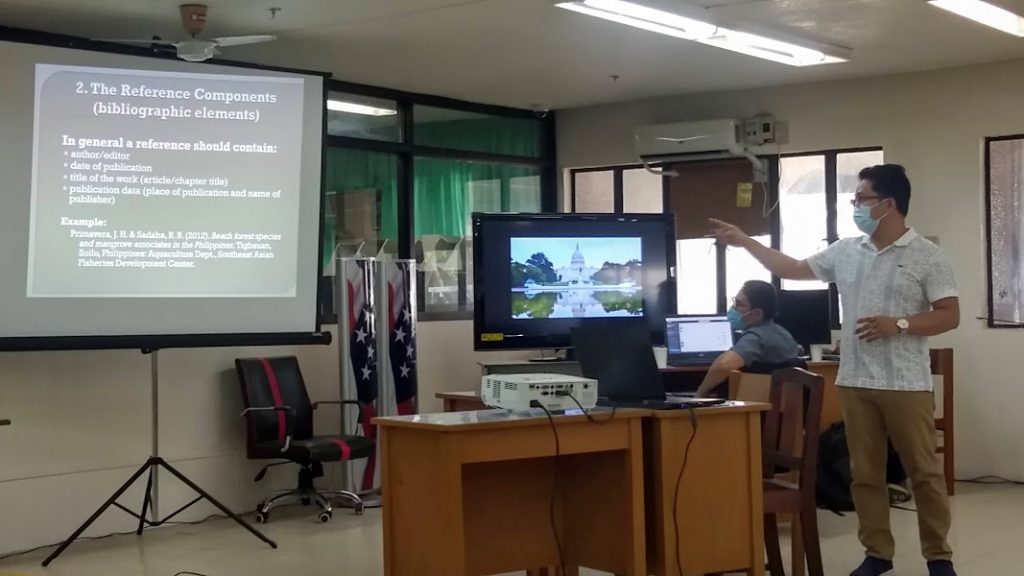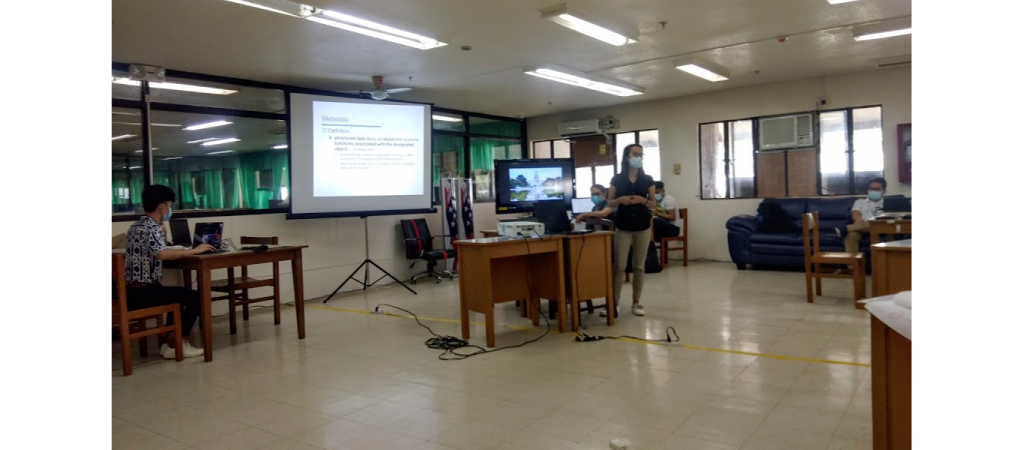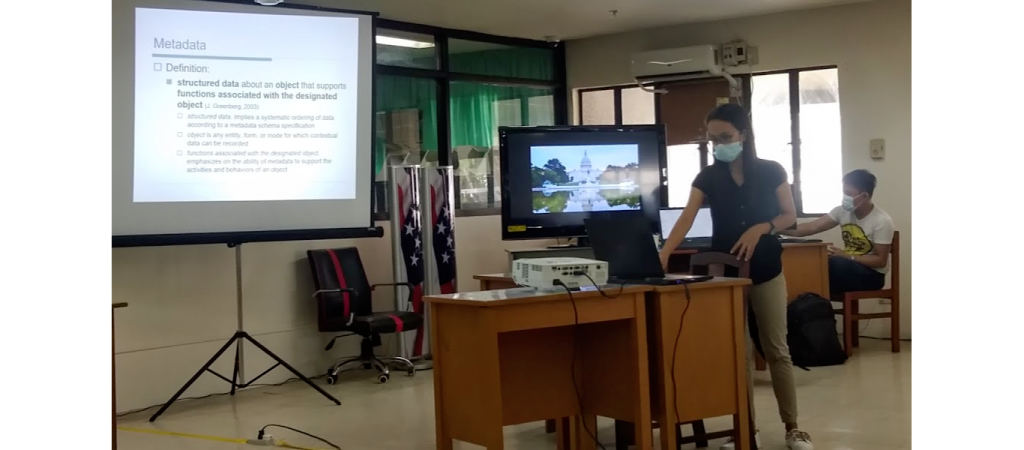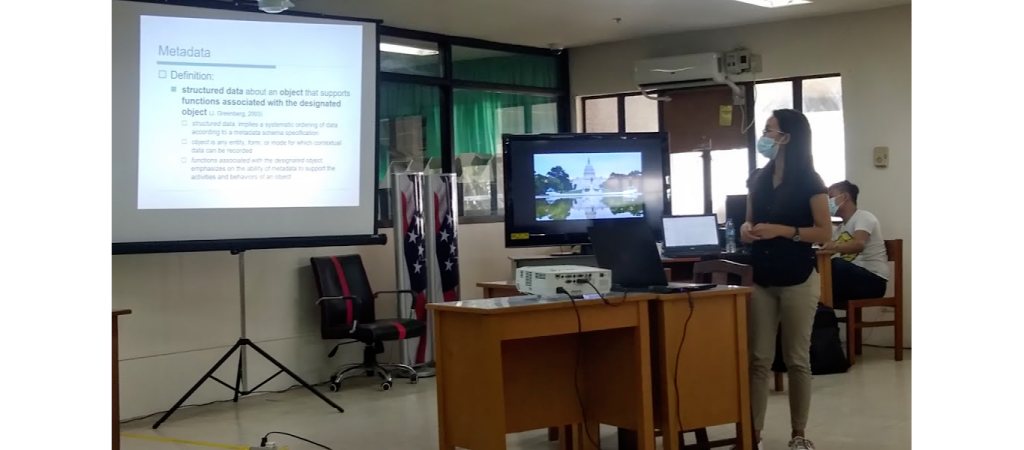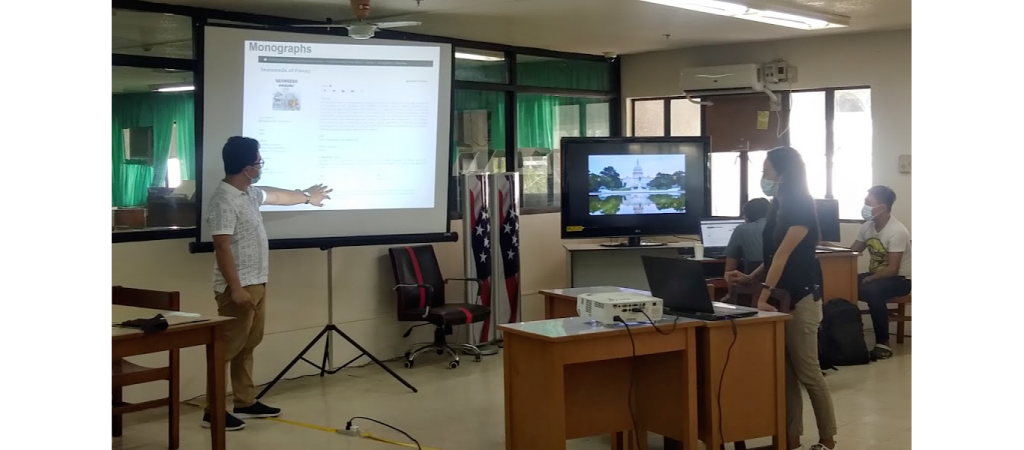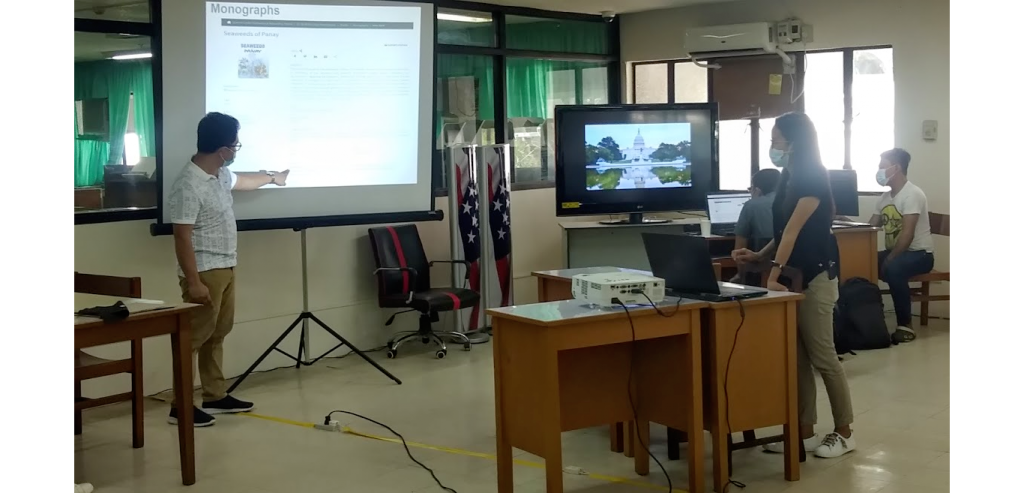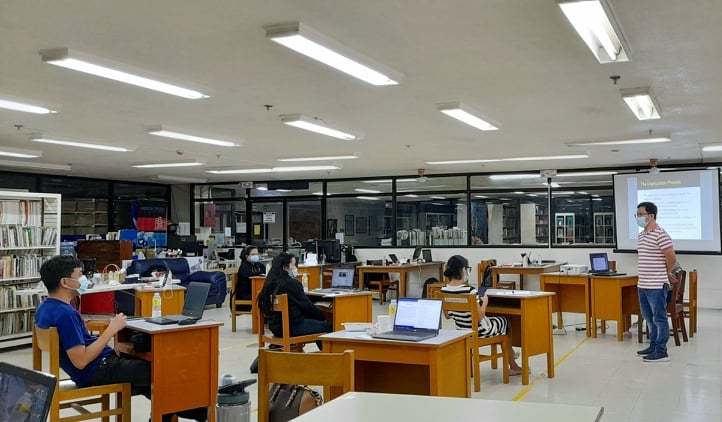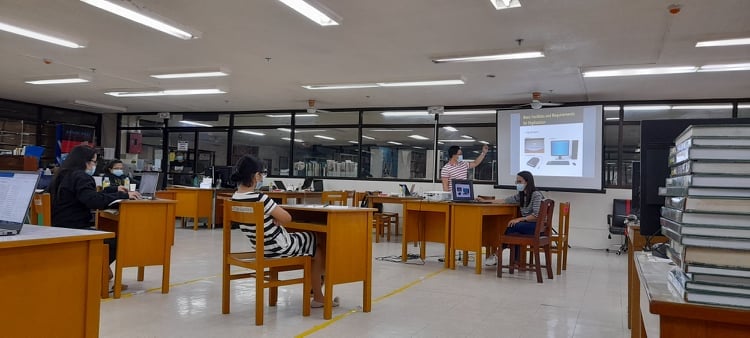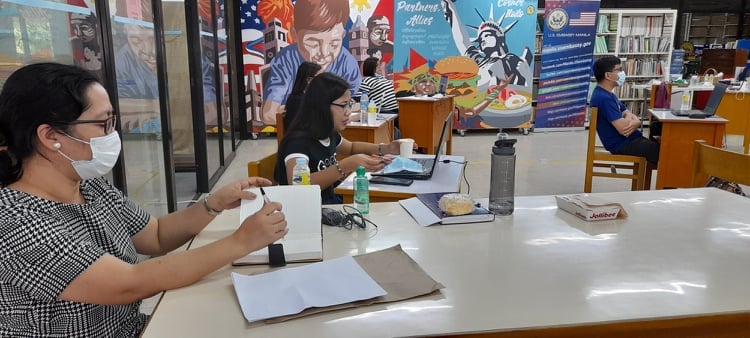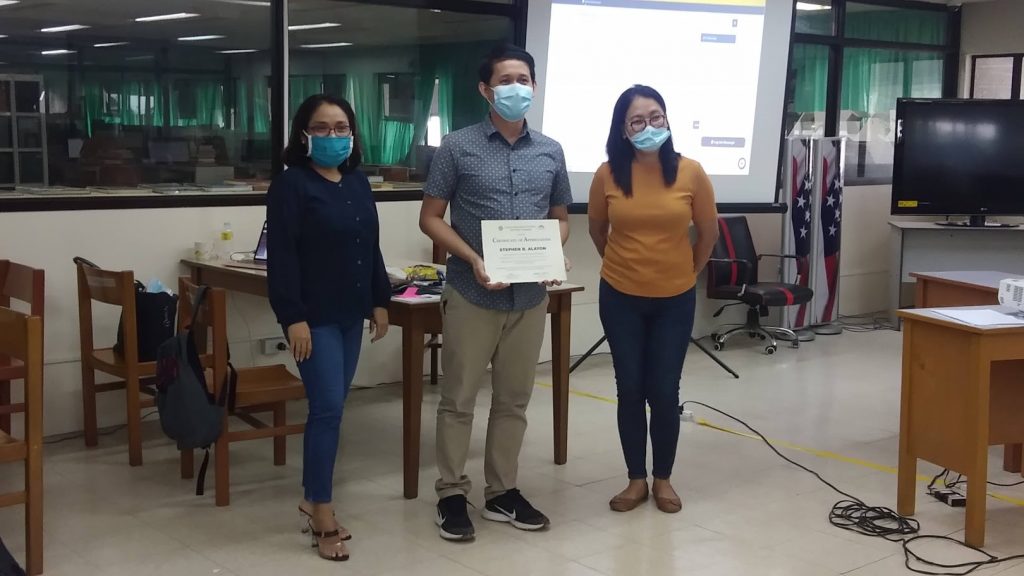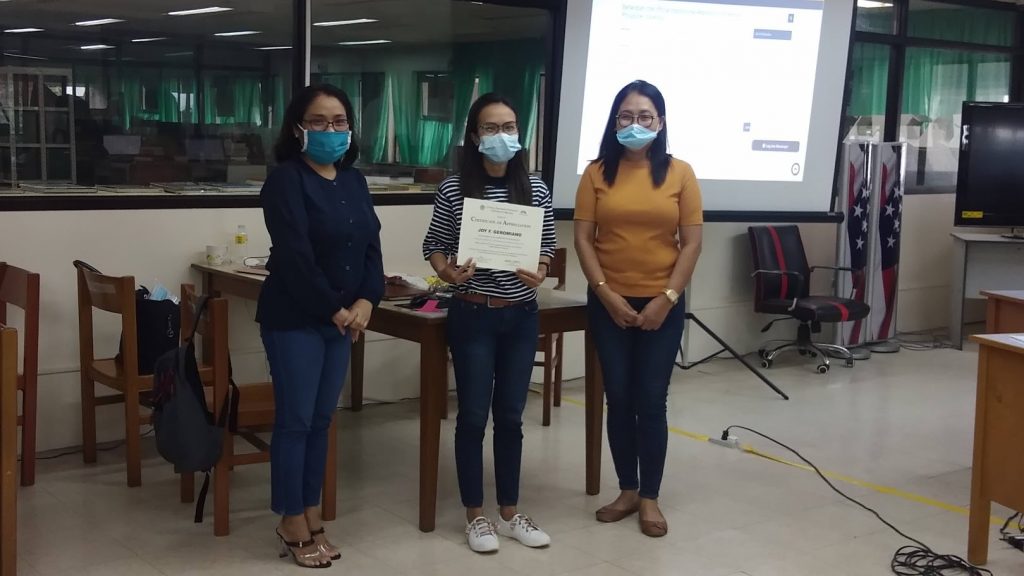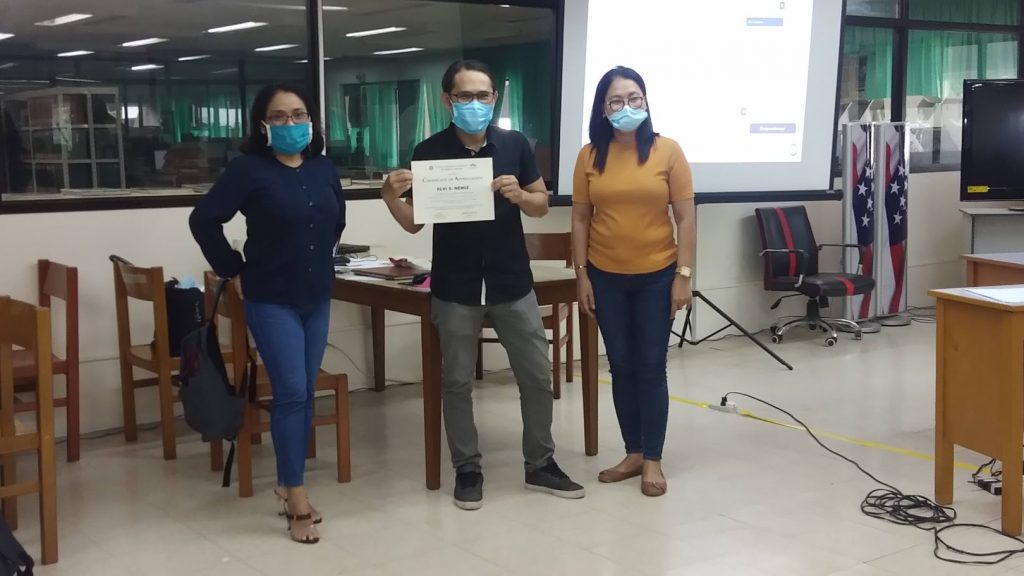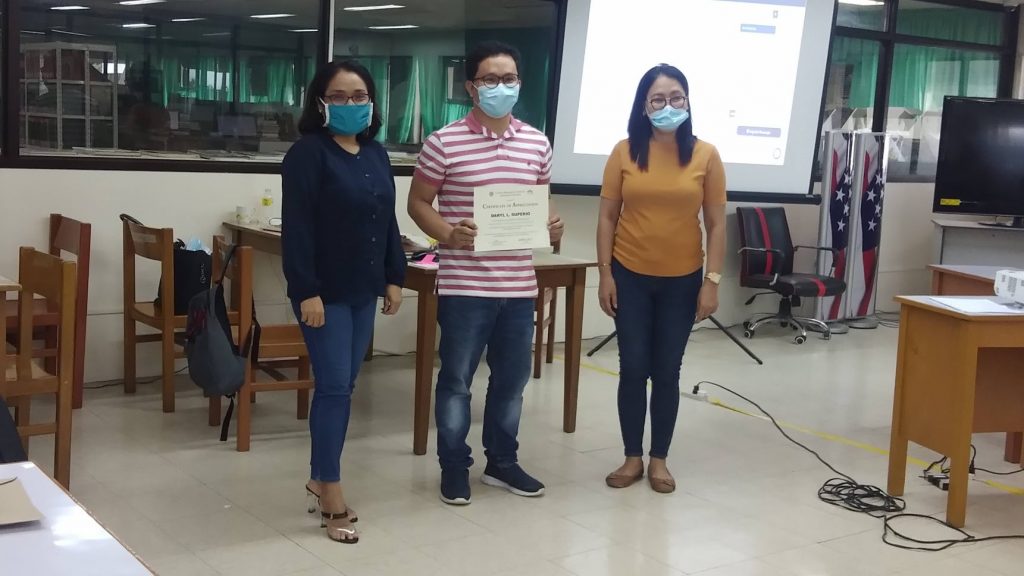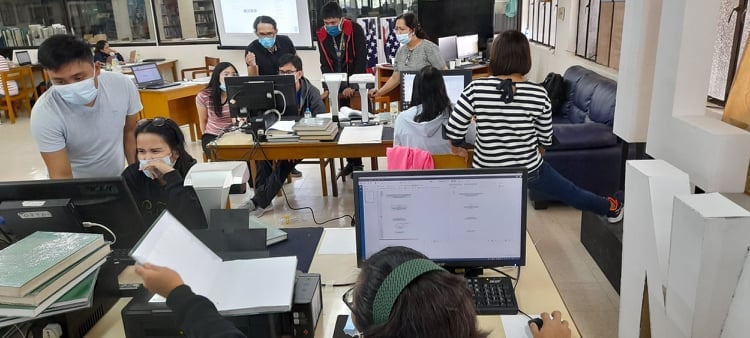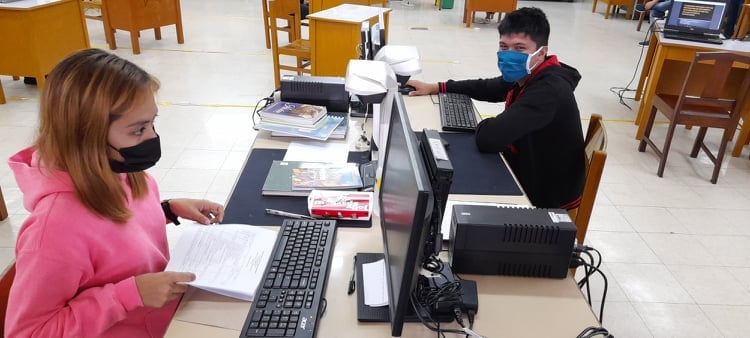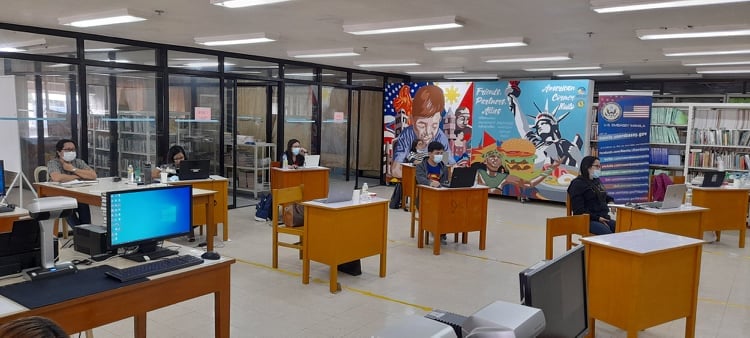Last January 21-23, 2021, librarians and staff in the Henry Luce III Library of Central Philippine University had a training on developing an institutional research repository. This is in preparation for the launch of the planned digital repository for the research output of the university.
The event was held in the American Corner, 3rd floor of the library.
This digital repository is planned to be open and accessible online. The focus of this repository is archiving and organizing the research output of students and faculty. Selected materials in the library will be scanned and digitized for this project.
The planned project is managed by the Henry Luce III Library of Central Philippine University.
Librarians and experts from Southeast Asian Fisheries Development Center – Aquaculture Department (SEAFDEC/AQD) Library & Data Bank shared their knowledge on creating and developing a digital repository. SEAFDEC/AQD has its own research repository developed by their library. They helped in setting up the system to be used by the university.
This training was for the librarians and staff of the Henry Luce III Library. On-the-job trainees (BSIT students from the College of Computer Studies) assigned for the repository also joined the training.
Day 1: Introduction to Institutional Repositories
For Day 1, Dr. Irving Domingo Rio, the University’s Vice President for Academic Affairs, welcomed the librarians and emphasized the importance of establishing CPU’s own institutional repository. This is to help increase the visibility of research conducted by students, faculty, and researchers. He also emphasized that CHED and other accrediting institutions give importance to the output and citations for the university’s researches.
The first speaker was Stephen Alayon, Senior Information Assistant and Head of the SEAFDEC/AQD Library and Data Bank. His talk was about the importance of research repositories and he presented the existing research repositories of well-known academic and research institutions.
Elvi Nemiz, Senior Information Assistant at the SEAFDEC/AQD Library and Data Bank, introduced DSpace. DSpace will be used to create CPU’s research repository.
DSpace is open source software package used for creating open access repositories for scholarly and published digital content. It was originally created by developers from Massachusetts Institute of Technology (MIT) and HP Labs. It is currently managed by LYRASIS.
There was a workshop on creating communities and collections in DSpace, managing users, and submitting records.
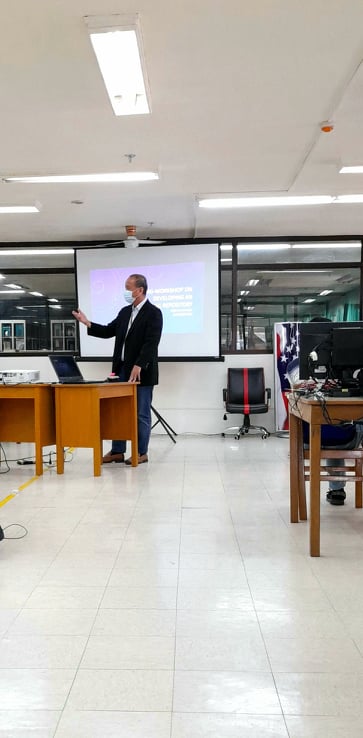
Dr. Irving Rio 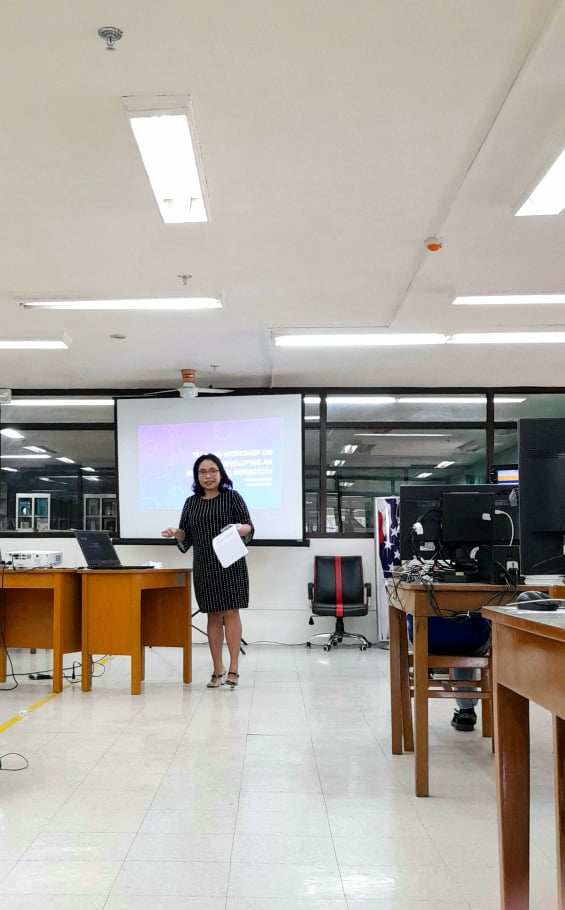
Dr. Reysa Alenzuela 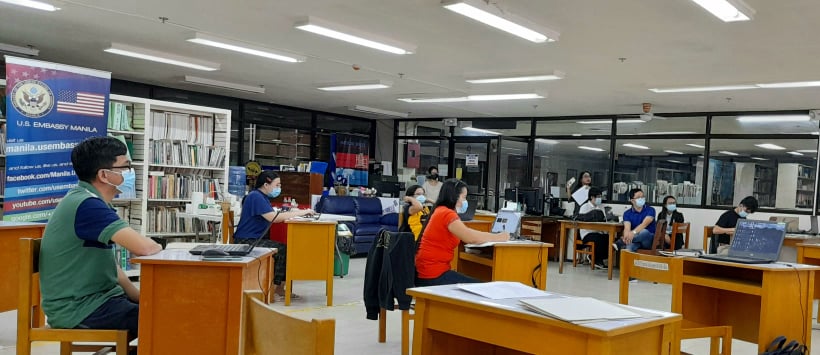
CPU Librarians and staff 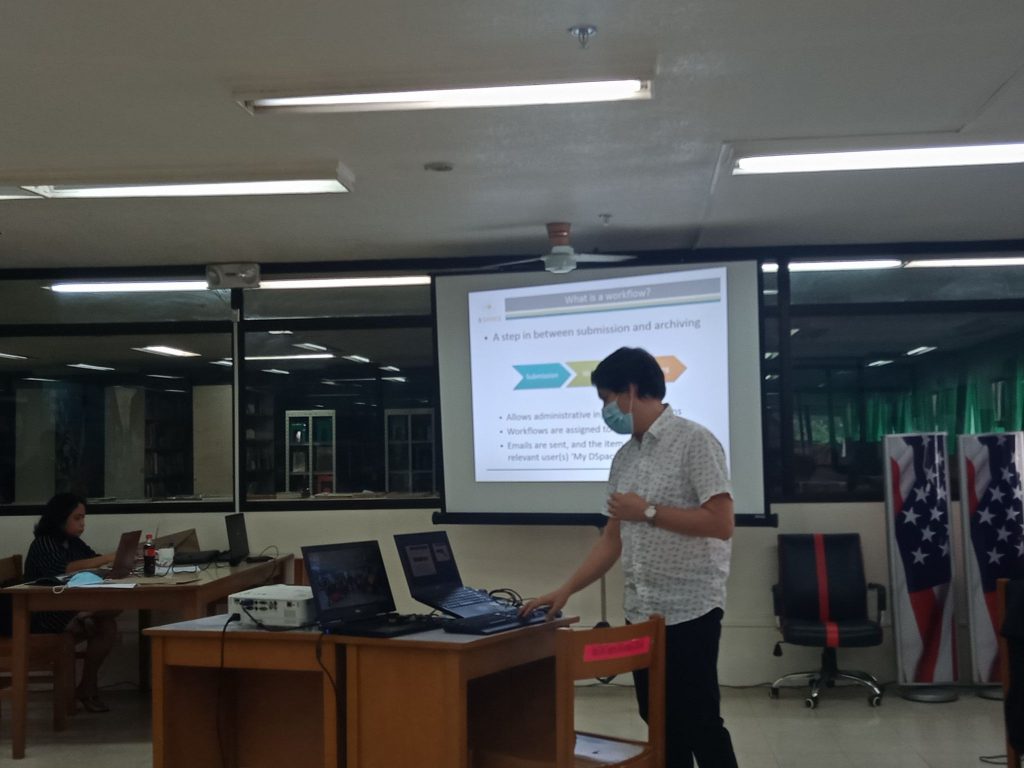
Stepen Alayon 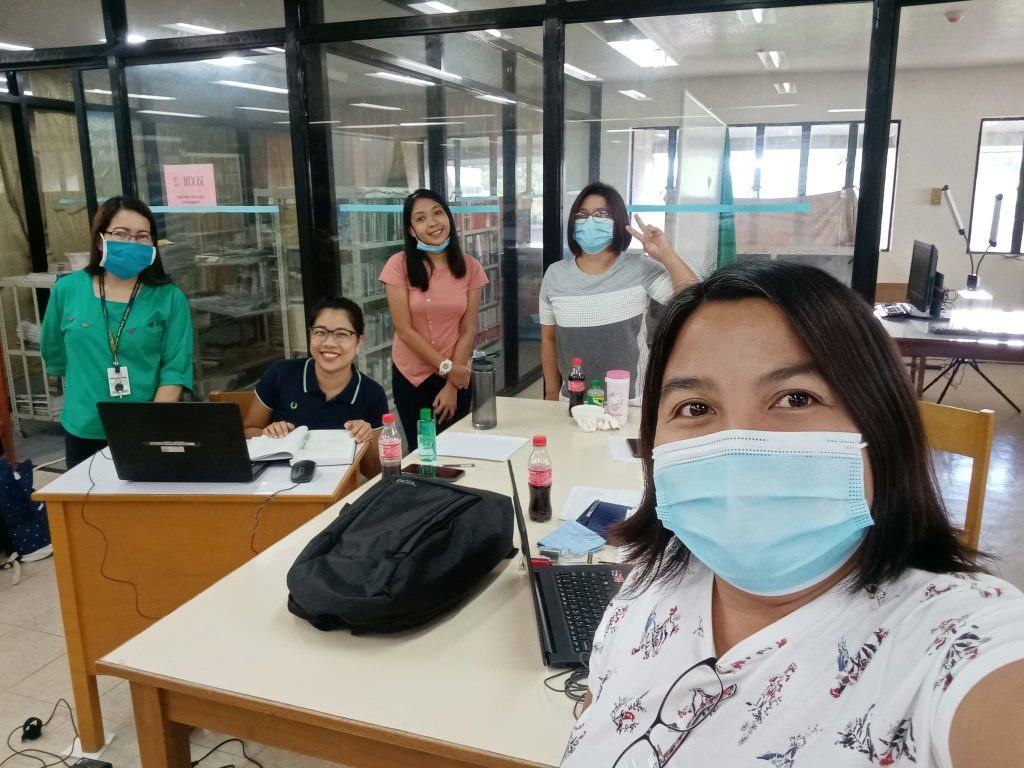
CPU Librarians and staff 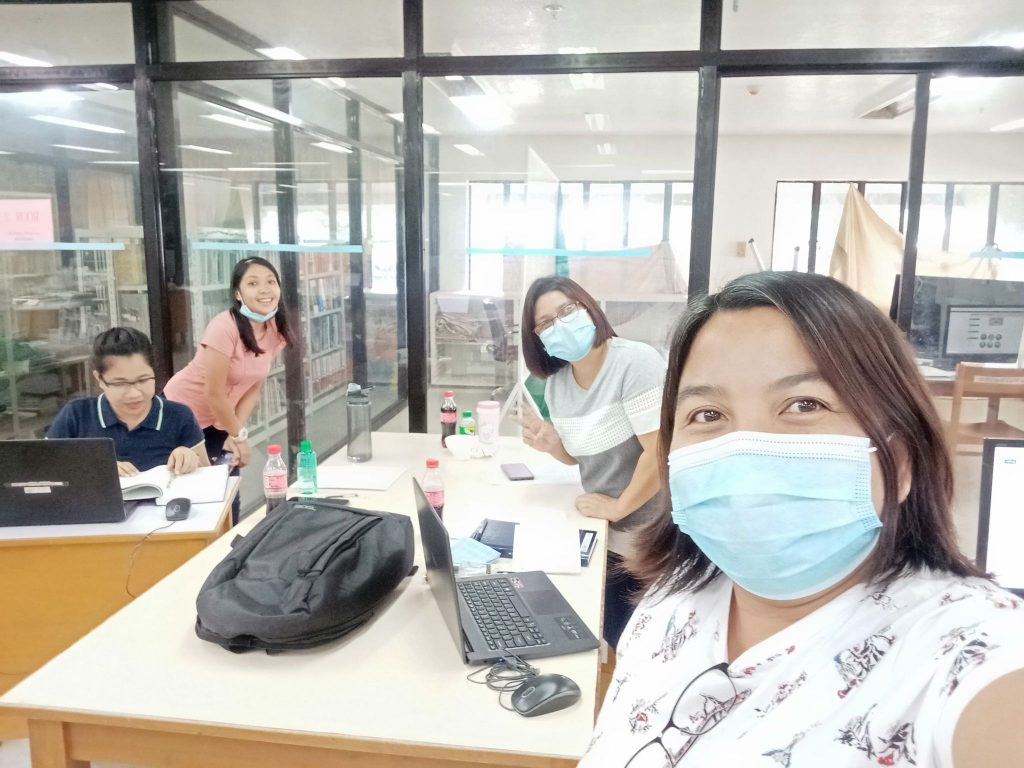
CPU Librarians and staff 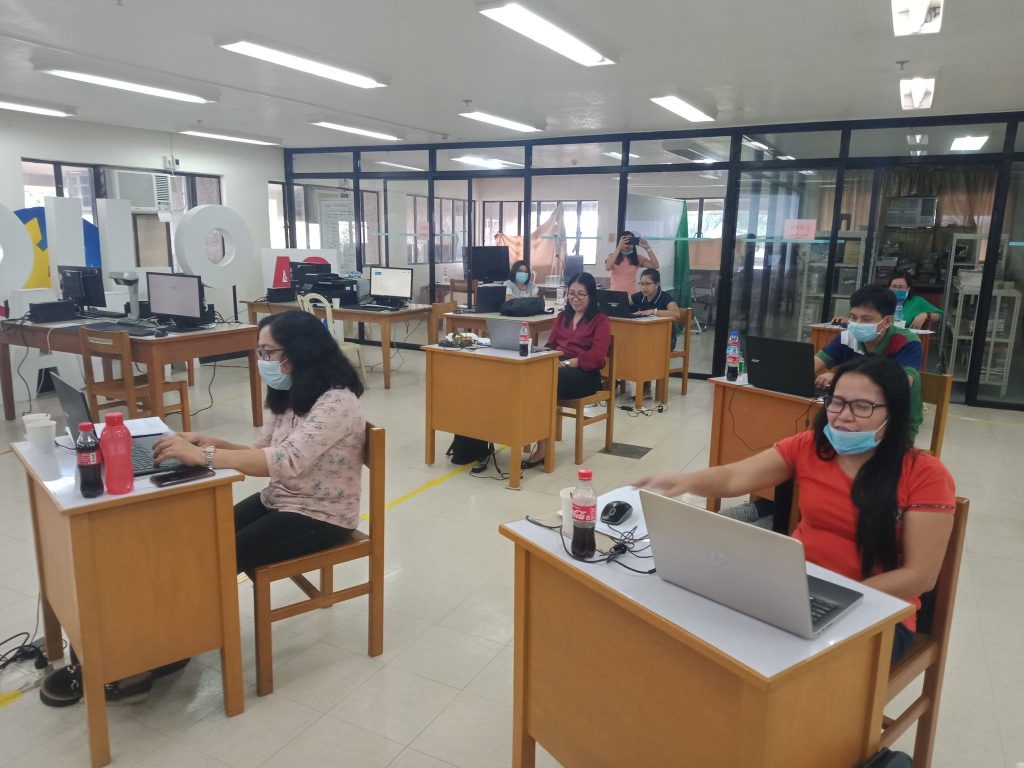
CPU Librarians and staff 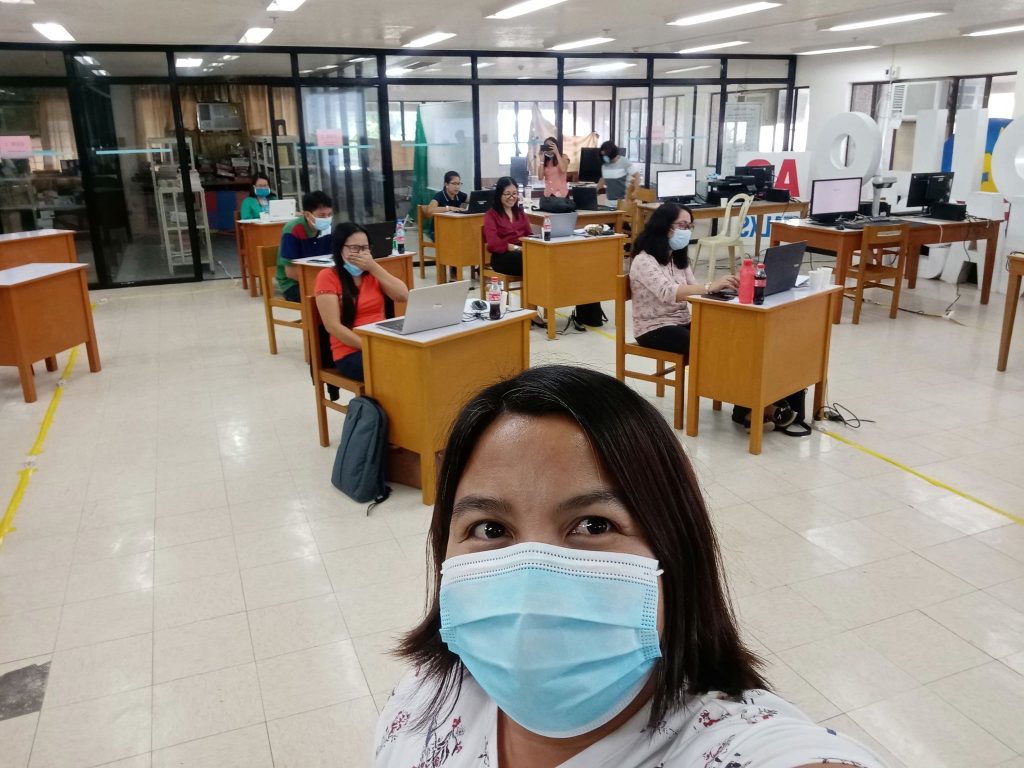
CPU Librarians and staff 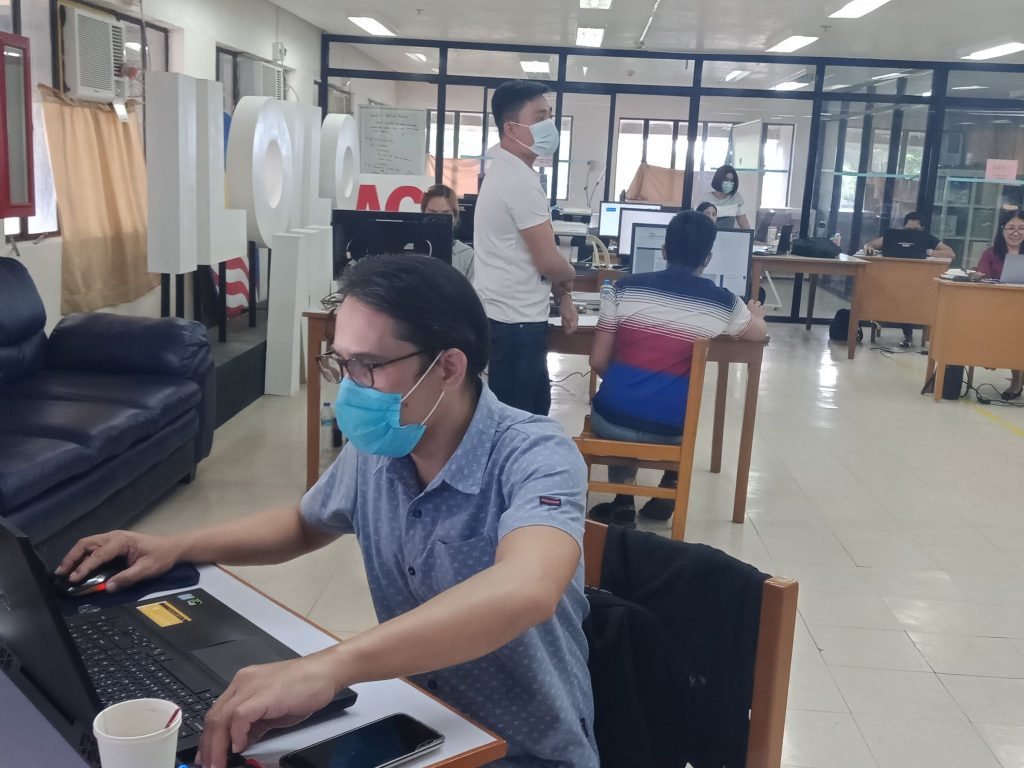
Elvi Nemiz 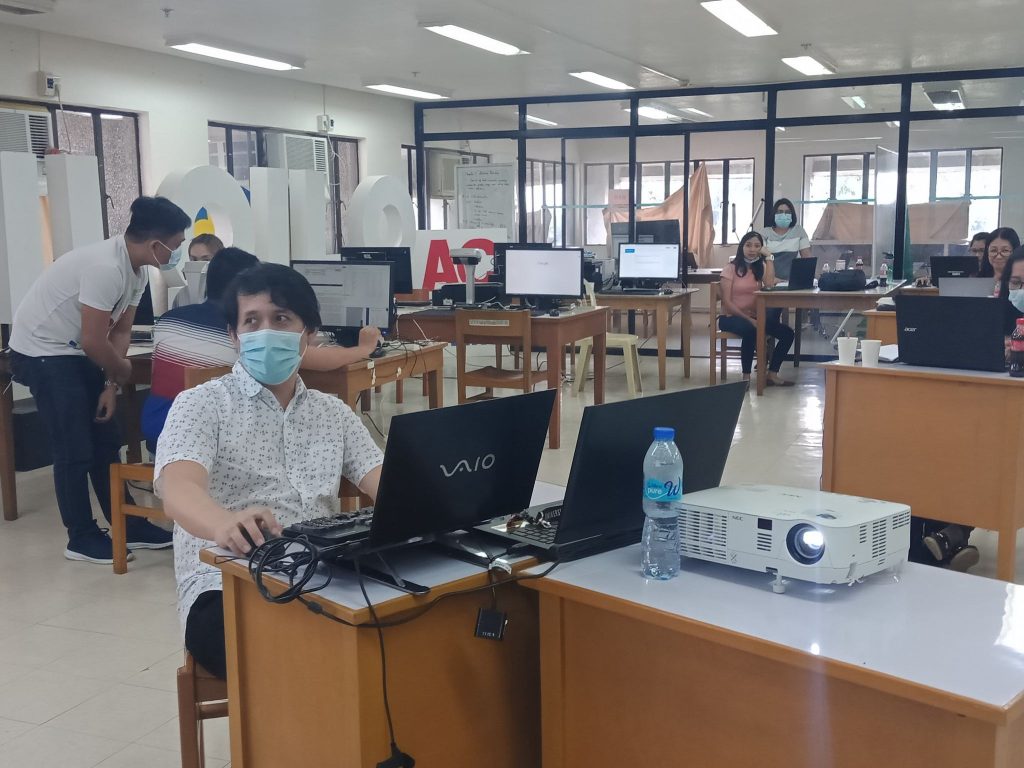
Training 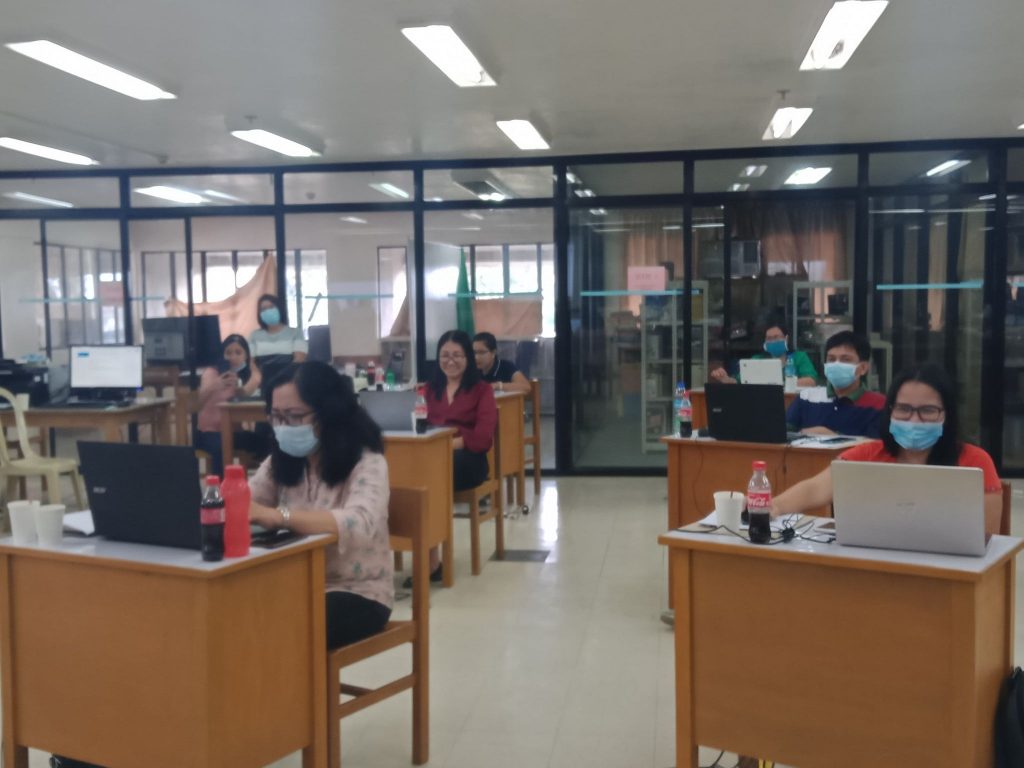
CPU Librarians and staff
Day 2: Metadata and Controlled Vocabulary for Institutional Repositories
The speakers for Day 2 was Daryl Superio (Senior Information Assistant at SEAFDEC/AQD Library) and Joy Geromiano (Information Assistant at SEAFDEC/AQD Library). They gave a brief overview of the APA Citation format. They also discussed relevant metadata and description of research resources such as theses, dissertations, and journal articles.
Assigning keywords and controlled vocabulary was also discussed. This is important for the institutional repository to be organized, consistent, and aligned with international standards.
Day 3: Digitization standards and best practices
For the last day of the training, the first topic was digitization standards and best practices by Daryl Superio and Joy Geromiano.
There was a hands-on workshop on scanning, optical character recognition (OCR), and uploading to the repository. Research data management was also discussed.
CPU’s Institutional Repository launch
At the moment, the library is entering data into the repository in preparation for launching. The priority are theses and dissertations from the School of Graduate Studies library. The repository is expected to launch on the 3rd week of February.
Thanks to Dr. Reysa Alenzuela for helping us in this project and Dr. Irving Domingo Rio for the support.
